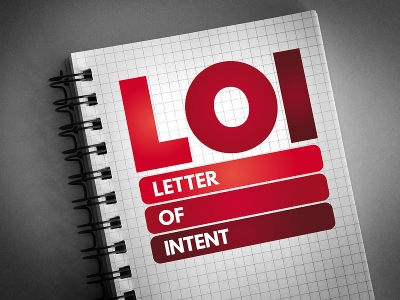
Contributor: Transactional Attorney
An LOI is typically a non-binding agreement that the parties use to start negotiations when there's serious interest on both sides, but not all deal terms have been agreed to yet. An LOI will typically include the proposed purchase price, terms, and the timeline for transaction to move forward.
Some of the best advice I ever got was when I was one of the sellers in a company I started and grew with my partners to #25 on the Inc. 500 and $60,000,000 in revenue. When we received an LOI from a potential purchaser I was ready to celebrate. After nine years I was more than ready to enjoy the payoff from the hard work we had all put in to build the company. But before I could start spending anything, one of our advisors told me, "Mark, we're on the 5 yard line, and we have 95 yards left to go...celebrate when we cross the goal line."
The lesson I took away that I share with my clients is that from the seller's perspective it's important not to consider an LOI a "done deal". While buyers should not submit LOIs unless they have serious and good faith interest in pursuing a transaction, some will use them as an opportunity to shop multiple businesses at the same time. A savvy seller with multiple potential buyers may not take an LOI seriously, and it's possible you could lose a deal to another buyer who starts with a formal purchase agreement.
A purchase agreement is a binding agreement that includes all of the terms of the transaction, including financing and earn-outs (if any), non-compete provisions, allocation of the purchase price across the business assets, and the representations and warranties the buyers and sellers are making. Depending on where you are with the transaction you may just not have enough information to draft a worthwhile purchase agreement.
Buyers will often start with an LOI when they're initially investigating a business purchase rather than with a complete purchase agreement. An LOI allows a buyer to show that they're interested enough in a transaction to proceed with due diligence, but may not have enough information to draft a complete purchase agreement yet.
As a rule of thumb, the more involved the transaction and larger the size, the more likely you'll be to start with an LOI rather than a purchase agreement. Nonetheless, an LOI can be used effectively in any size transaction if both the buyer and seller are sincere and simply need more time and information before they can draft a formal agreement.

 Glad to help out Jeff. Here is my contribution:
Glad to help out Jeff. Here is my contribution:









